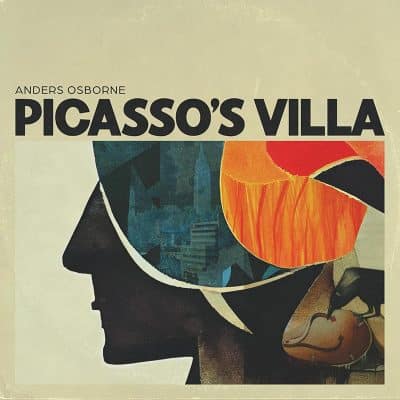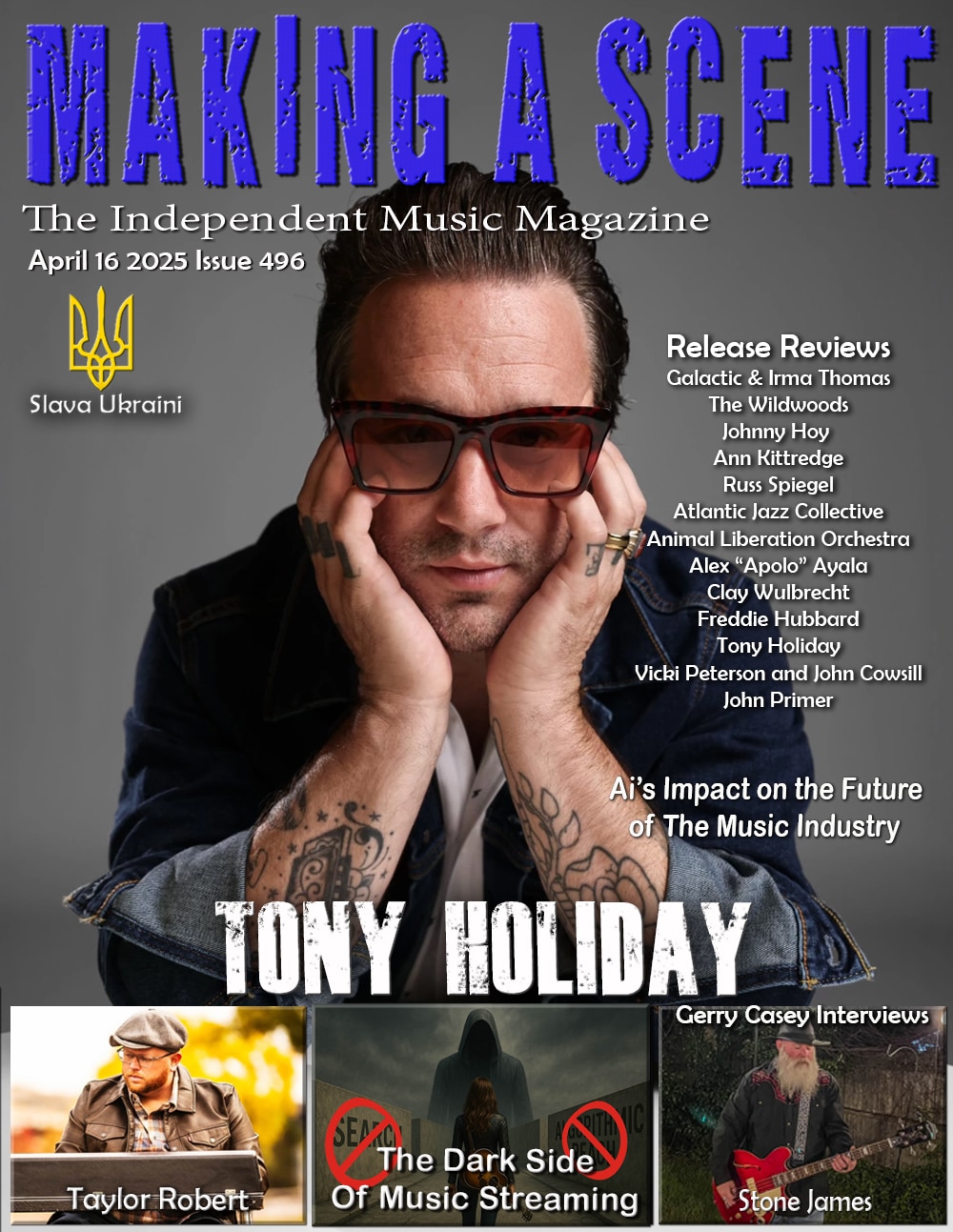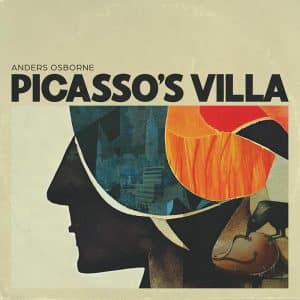Anders Osborne Picasso’s Villa
 Anders Osborne
Anders Osborne
Picasso’s Villa
5th Ward/Missing Piece Records
New Orleans-based singer-songwriter Anders Osborne returns with Picasso’s Villa after a five-year hiatus. Remarkably, it marks his seventeenth album. The singer-songwriter-guitarist has achieved almost living legend status in the Crescent City but somehow has never reached the widespread appeal that his talent deserves in a career that spans almost four decades. His battles with addiction are well chronicled with 2019’s Buddha and the Blues stamping his arrival at sobriety. Nonetheless, Osborne wanted time to reflect, to turn away from the stories of addiction and depression and express the joy he finds in his current healthy lifestyle, this period of healing and renewal. It’s yielded one of his most lyrically focused albums.
There is continuity to his past recording as rather than tapping the wealth of talent in his home city (with a couple of exceptions) he records with the same cast of well-renowned session musicians on Buddha and the Blues – guitarist Waddy Wachtel, bassist Bob Glaub, and his longtime producer/drummer Chad Cromwell. NOLA greats harmonicist Johnny Sansone and keyboardist Ivan Neville guest on selected tracks. Wendy Wagner-Cromwell harmonizes on three tracks. The music is what you’d expect, Cromwell Cloud rockers in the vein of Crazy Horse, the kind of fare that has built him a great reputation as a live act, and more thoughtful singer-songwriter material that is representative of the way he began his career. Musically, there’s little to identify with New Orleans; the album has more in common with ‘70s rock and folk-rock.
Yet, Osborne focuses on his home city lyrically especially in the bookended tracks, the acoustic strummed, harmonica imbued “Dark Decatur Love,” a rumination of his youth in the lower French Quarter and the community of societal outcasts (“Chased a stripper named Blue Illinois/Had long black legs and baby oil/But she liked girls much more than boys/Tall and tainted love/Dark Decatur love”). In “Le Grand Zombie,” a heartfelt tribute to his late mentor and friend, Dr. John, Osborne fittingly enlists a three-piece horn section- saxophonist Brad Walker, trumpeter Steve Lands, and trombonist John Ramm. Strings come courtesy of Budapest Strings arranged by Amotz Plessner.
Osborne’s joy is best exemplified in standout, “Reckless Heart,” a stomping anthem with soaring guitar leads in the breaks that celebrates his self-acceptance and an indirect plea that we should be accepting of others, free of prejudice. While there is just a slight hint of Crazy Horse in that one, it comes full bore in the power chords and sonic cacophony of “Real Good Dirt.” Osborne hasn’t lost a bit of his rocking edge. Neville’s organ propels the Dylan-like narrative of the title track, a sarcastic set of lyrics on our obsession with the spectacle, the ever-revolving news cycle, and the never-ending onslaught of misinformation. At least that’s the way this writer reads it – “Ohhh let’s go down to the big show/Musicians and monkeys on display/Bring cheese, wine and candles and a belly full of greed/Nobody here will miss you ‘til you got what they need.” Returning to My Bones” is exultant shout-out played to insistent beats, just a touch of funk, wailing guitar, and gleeful background vocals. The exuberance here is vastly different from those albums of ten or fifteen years ago that were often mired in depressing moods. “To Live” is akin in terms of an upbeat mood as he longs to escape the chaos of internet and TV.
The most memorable track though is the socio-political infused “Bewildered,” as Osborne spans highlights and low lights of events of the past four decades (O.J.’s Bronco chase, Monica Lewinsky, and other events we’d rather forget than remember like the OKC bombing). Present day topics center on transgender people out of the Army, classroom shootings, Black Lives Matter, and women’s rights. Curiously, there is no mention of Charlottesville or January 6th, but these lines are perhaps the most chilling – “Social media is where we do our bidding now/In the classroom is where we do our killing now.” His refrain “Nothing changes yet nothing stays the same” offers something to consider in these mostly troubling lyrics.
In his final bow Osborne reminds us that his roots will always be in New Orleans, pledging to “carry on your flame,” Dr. John’s legacy. The rejuvenated Anders Osborne has the energy and drive to do just that for years to come.
- Jim Hynes
BUY NOW
Buy Us a Cup of Coffee!
Join the movement in supporting Making a Scene, the premier independent resource for both emerging musicians and the dedicated fans who champion them.
We showcase this vibrant community that celebrates the raw talent and creative spirit driving the music industry forward. From insightful articles and in-depth interviews to exclusive content and insider tips, Making a Scene empowers artists to thrive and fans to discover their next favorite sound.
Together, let’s amplify the voices of independent musicians and forge unforgettable connections through the power of music
Make a one-time donation
Make a monthly donation
Make a yearly donation
Buy us a cup of Coffee!
Or enter a custom amount
Your contribution is appreciated.
Your contribution is appreciated.
Your contribution is appreciated.
DonateDonate monthlyDonate yearlyYou can donate directly through Paypal!
Subscribe to Our Newsletter
Discover more from Making A Scene!
Subscribe to get the latest posts sent to your email.
















































